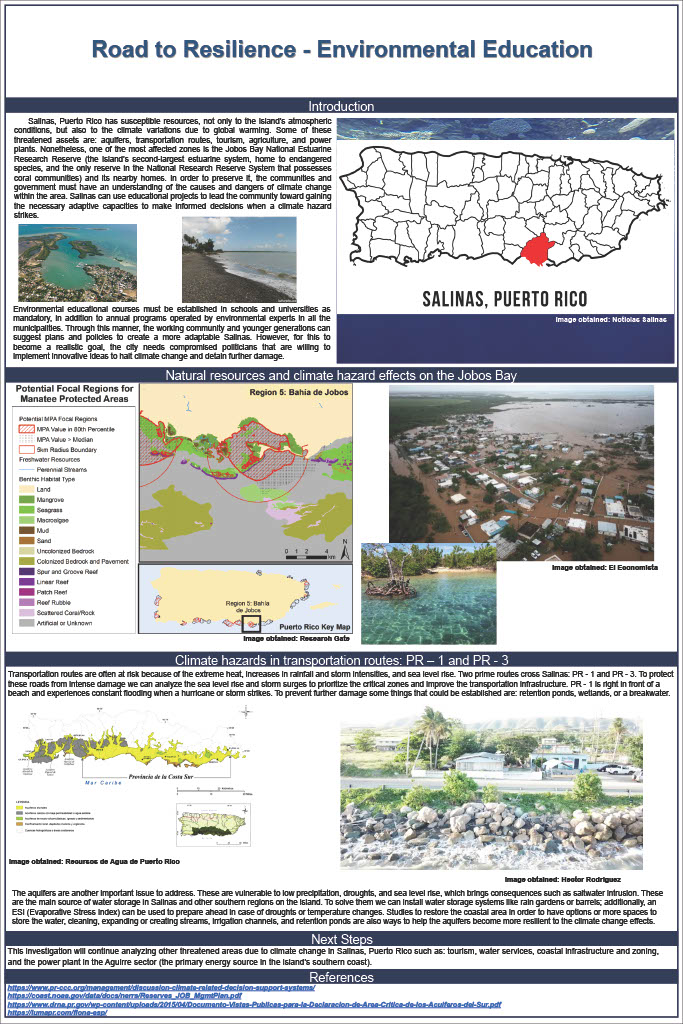Salinas, Puerto Rico has susceptible resources, not only to the island’s atmospheric conditions, but also to the climate variations due to global warming. Some of these threatened assets are: aquifers, transportation routes, tourism, agriculture, and power plants. Nonetheless, one of the most affected zones is the Jobos Bay National Estuarine Research Reserve (the island’s second-largest estuarine system, home to endangered species, and the only reserve in the National Research Reserve System that possesses coral communities) and its nearby homes. In order to preserve it, the communities and government must have an understanding of the causes and dangers of climate change within the area. Salinas can use educational projects to lead the community toward gaining the necessary adaptive capacities to make informed decisions when a climate hazard strikes. Environmental educational courses must be established in schools and universities as mandatory, in addition to annual programs operated by environmental experts in all the municipalities. Through this manner, the working community and younger generations can suggest plans and policies to create a more adaptable Salinas. However, for this to become a realistic goal, the city needs compromised politicians that are willing to implement innovative ideas to halt climate change and detain further damage.
Contact us
Thank you for your interest in contacting Future Engineers. We look forward to connecting with you!
General Inquiries
support@futureengineers.orgSponsorship Inquiries
sponsor@futureengineers.org
